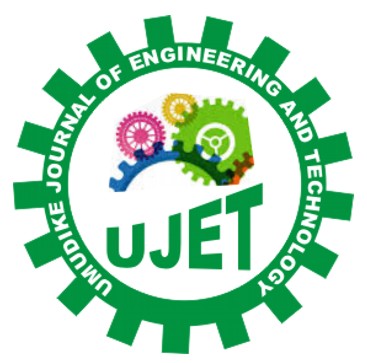|
Itam, D. H.
Department of Civil and Environmental Engineering, Faculty of Engineering & Technology, University of Calabar, Cross Rivers State, Nigeria.
Ekwueme, C. M.
Department of Civil and Environmental Engineering, Faculty of Engineering & Technology, University of Calabar, Cross Rivers State, Nigeria.
Okosa, I.
Department of Agricultural and Bioresources Engineering, Michael Okpara University of Agriculture, Umudike, Abia State, Nigeria.
ABSTRACT
Nigeria's
reliance on fossil fuels for energy generation and consumption in many sectors
of the economy has resulted in the release of a substantial amount of carbon
dioxide (CO2), which is one of the most common gaseous pollutants found in the
environment. The high concentration of CO2 has negative consequences on human
health and the environment. The World Bank provided CO2-emission data for
Nigeria over a multi-decade period (1980 – 2017). This research paper explores the application
of machine learning (ML) techniques, specifically linear regression and
regularization methods, to predict carbon dioxide (CO2) emissions using a
dataset from Nigeria. The study explores
the relationship between CO2 emissions and various factors such as petroleum
and other liquids, coal and coke, and consumed natural gas and evaluates the
performance of different regularization techniques in improving the accuracy of
the predictive model.
Keywords: CO2; emissions; assessment; linear regression; regularization
https://doi.org/10.33922/j.ujet_v11i1_3
|
View: 325 | Download: 11
Published
Monday, February 03, 2025
Issue
Vol. 11 No. 1, June 2025
Article Section
GENERAL
The contents of the articles are the sole opinion of the author(s) and not of UJET.
|


